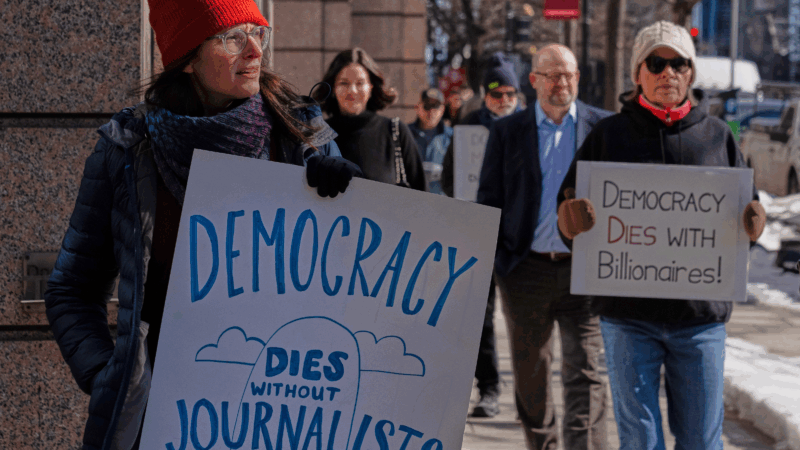Trump says the U.S. has signed a deal with China on trade, without giving details
BANGKOK — The U.S. and China have signed an agreement on trade, President Donald Trump said, adding he expects to soon have a deal with India.
Commerce Secretary Howard Lutnick told Bloomberg TV that the deal was signed earlier this week. Neither Lutnick nor Trump provided any details about the agreement.
“We just signed with China the other day,” Trump said late Thursday.
Lutnick said the deal was “signed and sealed” two days earlier.
It follows initial talks in Geneva in early May that led both sides to postpone massive tariff hikes that were threatening to freeze much trade between the two countries. Later talks in London set a framework for negotiations and the deal mentioned by Trump appeared to formalize that agreement.
“The president likes to close these deals himself. He’s the dealmaker. We’re going to have deal after deal,” Lutnick said.
China has not announced any new agreements, but it announced earlier this week that it was speeding up approvals of exports of rare earths, materials used in high-tech products such as electric vehicles. Beijing’s limits on exports of rare earths have been a key point of contention.
The Chinese Commerce Ministry said Thursday that Beijing was accelerating review of export license applications for rare earths and had approved “a certain number of compliant applications.”
Export controls of the minerals apparently eclipsed tariffs in the latest round of trade negotiations between Beijing and Washington after China imposed permitting requirements on seven rare earth elements in April, threatening to disrupt production of cars, robots, wind turbines and other high-tech products in the U.S. and around the world.
The agreement struck in May in Geneva called for both sides to scale back punitive tariff hikes imposed as Trump escalated his trade war and sharply raised import duties. Some higher tariffs, such as those imposed by Washington related to the trade in fentanyl and duties on aluminum and steel, remain in place.
The rapidly shifting policies are taking a toll on both of the world’s two largest economies.
The U.S. economy contracted at a 0.5% annual pace from January through March, partly because imports surged as companies and households rushed to buy foreign goods before Trump could impose tariffs on them.
In China, factory profits sank more than 9% from a year earlier in May, with automakers suffering a large share of that drop. They fell more than 1% year-on-year in January-May.
Trump and other U.S. officials have indicated they expect to reach trade deals with many other countries, including India.
“We’re going to have deal after deal after deal,” Lutnick said.
Pentagon says it’s cutting ties with ‘woke’ Harvard, ending military training
Amid an ongoing standoff between Harvard and the White House, the Defense Department said it plans to cut ties with the Ivy League — ending military training, fellowships and certificate programs.
‘Washington Post’ CEO resigns after going AWOL during massive job cuts
Washington Post chief executive and publisher Will Lewis has resigned just days after the newspaper announced massive layoffs.
In this Icelandic drama, a couple quietly drifts apart
Icelandic director Hlynur Pálmason weaves scenes of quiet domestic life against the backdrop of an arresting landscape in his newest film.
After the Fall: How Olympic figure skaters soar after stumbling on the ice
Olympic figure skating is often seems to take athletes to the very edge of perfection, but even the greatest stumble and fall. How do they pull themselves together again on the biggest world stage? Toughness, poise and practice.
They’re cured of leprosy. Why do they still live in leprosy colonies?
Leprosy is one of the least contagious diseases around — and perhaps one of the most misunderstood. The colonies are relics of a not-too-distant past when those diagnosed with leprosy were exiled.
This season, ‘The Pitt’ is about what doesn’t happen in one day
The first season of The Pitt was about acute problems. The second is about chronic ones.






